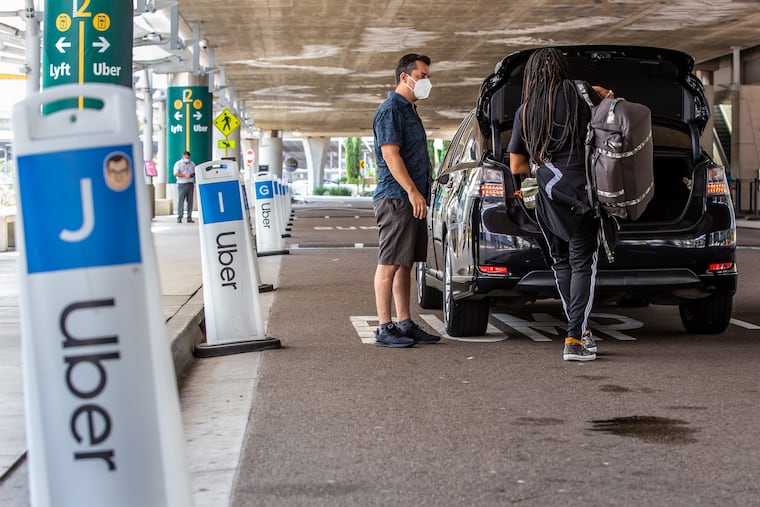A mask selfie could be part of your next Uber ride
The feature will roll out in the U.S. by the end of the month.

The next time you’re in an Uber vehicle, you may need to prove that you’re protecting yourself and others from COVID-19.
Passengers reported by a driver to have ditched a mask will soon be made to take a selfie showing they are wearing a face covering before their next trip, the rideshare giant announced Tuesday. Masks have been required since May, enforced upon riders by a checklist agreement, but the latest effort looks to deliver evidence.
It may only be fair: Uber drivers and delivery people already have had to take a selfie of themselves wearing a mask before going active for their day.
“We firmly believe that accountability is a two-way street. That’s why we’re expanding the same technology to riders, too,” Sachin Kansal, Uber’s global head of safety product, wrote in a blog post Tuesday. “With the addition of this new feature, one driver’s feedback can help ensure the safety of Uber for the next driver.”
An Uber spokesperson could not say when the system will roll out in Philadelphia but said “it will be by the end of September.”
When riders in question hail a vehicle through the Uber app, they will be met with a set of safety guidelines followed by a prompt asking them to take a photo accompanied with a message that reads: “Due to driver feedback from your recent trip, we’d like to verify that you’re wearing a face cover or mask.”
The technology “does not process biometric information,” according to Uber.
Lyft is piloting a verification system in selected markets, including Philadelphia, to ensure that all parties are wearing a face covering, according to a company spokesperson. Lyft plans to launch the system everywhere in “the coming months.”
Mask wearing has been proven to be effective in protecting against the spread of the coronavirus. Face coverings should be worn in places where social distancing is difficult, according to the Centers for Disease Control and Prevention.
Rideshare customers have the advantage of being able to control air ventilation by cracking windows open, James Lo, assistant professor at Drexel University’s department of civil, architectural, and environmental engineering, has said.
A limited ability to control social distancing and costs are some of rideshare’s disadvantages. Not sure which method of transportation to take when running your next errand? The Inquirer has a guide on all the ways to make trips safer on SEPTA, bikes, and when riding in a car.